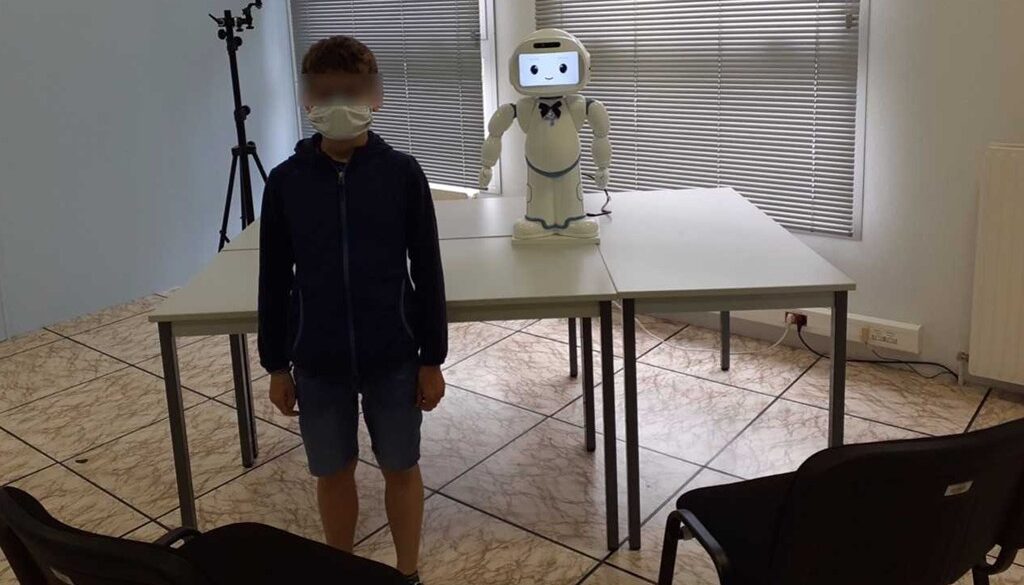
Abstract
This pilot study explores the potential of using a humanoid social robot to enhance social interaction skills in adolescents with Autism Spectrum Disorder (ASD). Two adolescents, one with severe autism and intellectual disability and one with Asperger’s syndrome, participated in a gesture imitation game led by QTrobot, in collaboration with human educators. Over multiple sessions, researchers observed improvements in participants’ comfort levels, engagement, and imitation behaviors. The findings suggest that robots, by providing predictable, non-judgmental, and expressive interactions, can serve as effective tools for fostering social skills development in autistic adolescents. The study highlights the unique advantages of integrating robots into therapeutic settings and calls for further research with larger participant groups to validate and expand these promising results.
Reference:
Vallée, L. , Koné, M. and Asseu, O. (2025) Generating Social Interactions with Adolescents with Autism Spectrum Disorder, through a Gesture Imitation Game Led by a Humanoid Robot, in Collaboration with a Human Educator. Open Journal of Psychiatry, 15, 55-71.